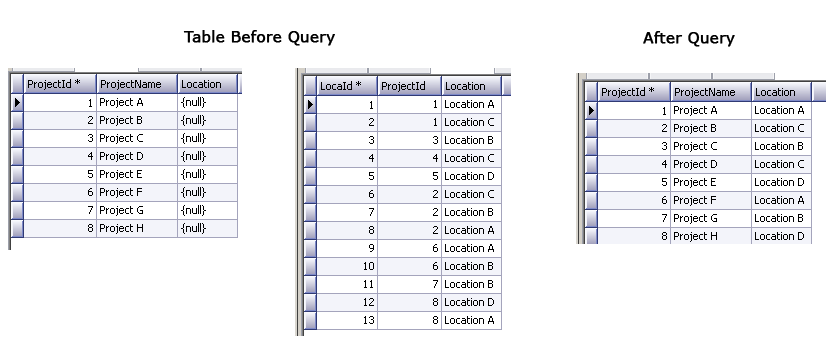The first Location from second table should be added to the first table Location.
CREATE TABLE projectlist(ProjectId INT NOT NULL PRIMARY KEY AUTO_INCREMENT,
ProjectName VARCHAR(50),
Location VARCHAR(50));
CREATE TABLE LocationList(LocaId INT NOT NULL PRIMARY KEY AUTO_INCREMENT,
ProjectId INT,
Location VARCHAR(50));
INSERT INTO projectlist(ProjectName)
VALUES('Project A'),
('Project B'),
('Project C'),
('Project D'),
('Project E'),
('Project F'),
('Project G'),
('Project H');
INSERT INTO LocationList(ProjectId, Location)
VALUES(1, 'Location A'),
(1, 'Location C'),
(3, 'Location B'),
(4, 'Location C'),
(5, 'Location D'),
(2, 'Location C'),
(2, 'Location B'),
(2, 'Location A'),
(6, 'Location A'),
(6, 'Location B'),
(7, 'Location B'),
(8, 'Location D'),
(8, 'Location A');

UPDATE projectlist JOIN (SELECT LocationList.ProjectID,
LocationList.Location
FROM LocationList
JOIN (SELECT LocationList.ProjectID,
min(LocaId) minLocaId
FROM LocationList
GROUP BY LocationList.ProjectID) l1
ON LocationList.LocaId = l1.minLocaID) l2 ON projectList.ProjectID = l2.ProjectID
SET ProjectList.Location = l2.Location;
